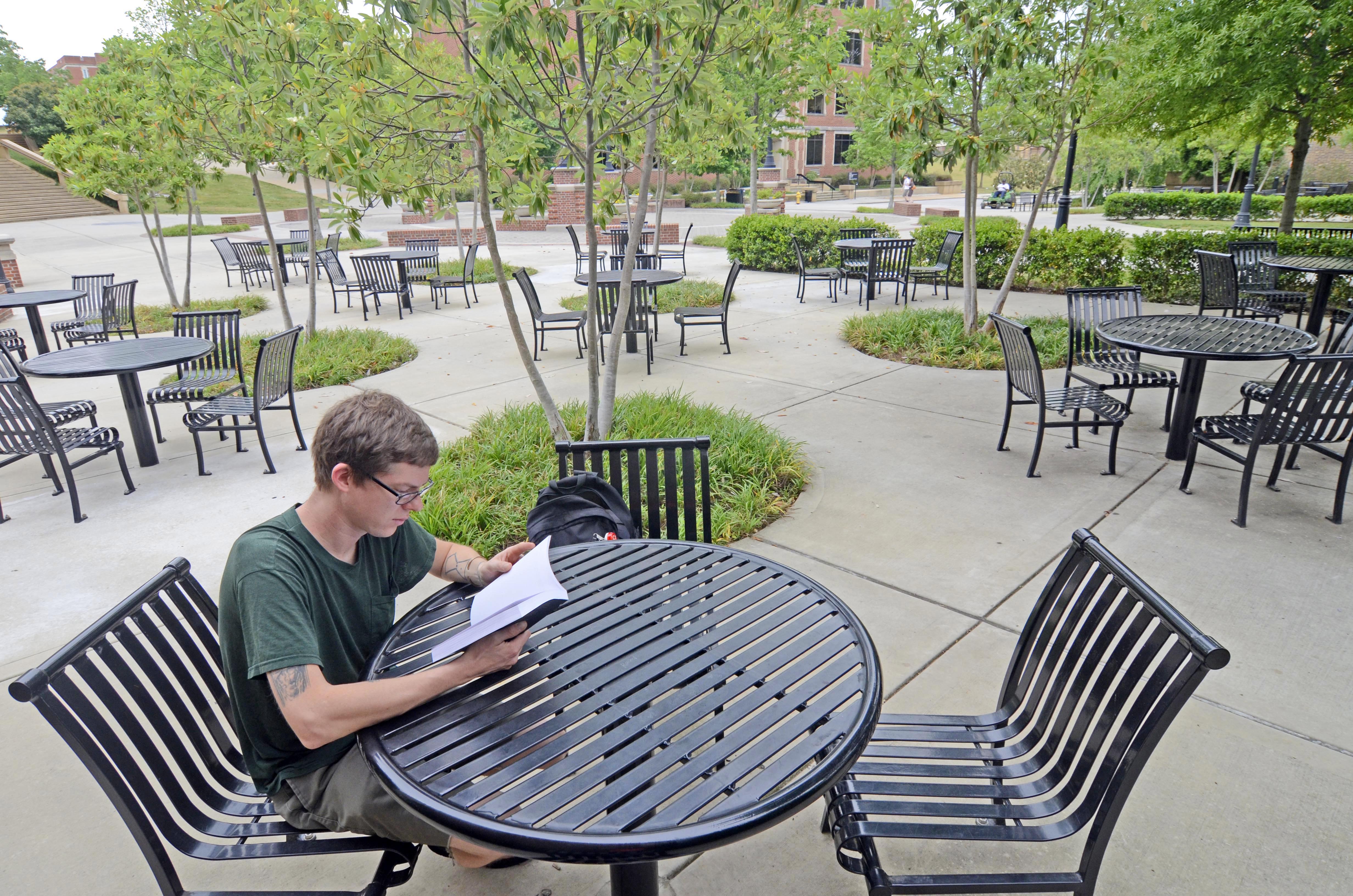SURVEY FINDINGS• UTC students like Chattanooga, but it's missing a college-town atmosphere.• "Dead zones" between downtown and UTC create safety issues.• Most students go downtown two or less times weekly.• Downtown lacks a grocery store and needs more affordable housing.MOST APPEALING DOWNTOWN ACTIVITIES1. Arts/theater2. Bars/clubs3. Attractions4. Movies5. Music venues6. Parks7. RestaurantsSource: UTC survey
UTC is about a five-minute walk from downtown's core, but many students feel unsafe and ignored in the central city, a new survey shows.
About 45 percent of the students who responded to the survey said they felt unsafe walking alone downtown at night, while 67 percent would prefer to drive.
Also, while students like Chattanooga, they believe downtown caters to tourists and families and not to them, according to the survey that drew more than 600 responses.
Most students go downtown just two or fewer times a week, according to survey work that stemmed from discussions between the UTC College of Business Dean Robert Dooley and River City Co. chief Kim White.
"They wanted more things that focus on student groups," said Ruben Gamboa, one of 10 UTC students who took part in putting together the study and who helped present results to the Chattanooga Area Chamber of Commerce's Downtown Council on Thursday.
More than 11,000 students attend the University of Tennessee at Chattanooga and more than 3,000 now live on campus, but they're not seen as a serious customer base, he said.
Students want to see more discounts at businesses, and they don't want to have to drive to Hamilton Place to buy a shirt, Gamboa said.
They'd like to shop at a grocer downtown and see more affordable living space, he said. Many students see downtown residents as wealthy people who live in condominiums and the poor living off government subsidies, Gamboa said.
Joe Ellis, another UTC student involved in the survey done with the help of Aaron Petticord of The Johnson Group, said the group raised the idea of a smart phone app that could show stores offering discounts to students.
Concerning the safety issue, he said there are opportunities to create activity in so-called "dead zones" between UTC and downtown's core. These blocks are often dark, may hold little more than parking lots and have hardly any foot or vehicle traffic.
Ellis said the group suggested more mixed-use development involving retail, restaurants and even student businesses.
"You could use the retail for music venues, coffee shops," he added, noting there's only one 24-hour coffee shop near campus.
If property is owned by UTC, it could lease space to students interested in startup businesses, Ellis said.
In regards to transportation, the group offered the idea of a dedicated trolley running between campus and downtown.
"Students don't feel like they're part of Chattanooga," Ellis said, adding there ought to be more signs downtown "celebrating the university."
UTC spokesman Chuck Cantrell said while the university already has taken some steps, its master planning process is now ongoing and the survey's findings could be incorporated into it.
Lisa Flint of River City Co. said the nonprofit downtown redevelopment group has identified the dead zones and those need attention, though the students' safety concerns surprised her.
